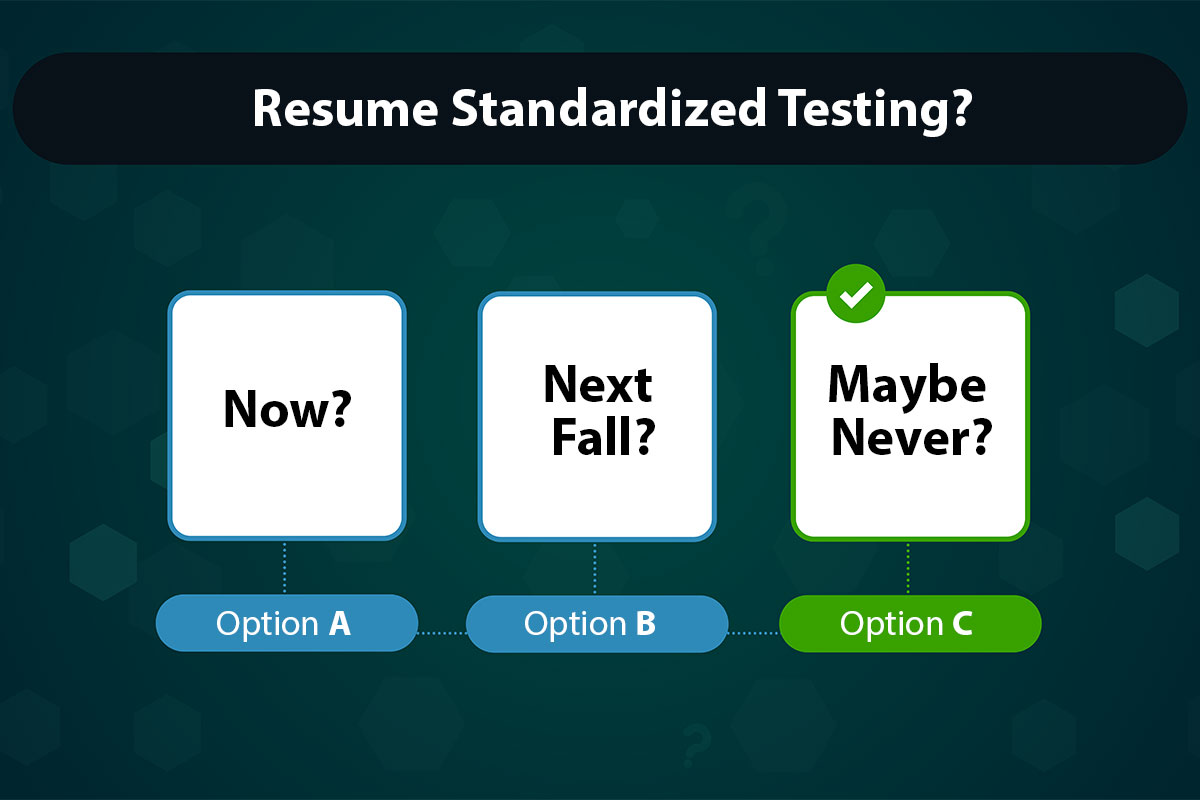As the first-year anniversary of pandemic-related school closings approaches, education stakeholders are debating whether to resume universal standardized testing of students who, in many instances, have gone as long as a year without in-school instruction. In an opinion piece for The Hechinger Report, Aaron Pallas, Arthur I. Gates Professor of Sociology & Education at Teachers College, writes that testing this spring should be called off.

Aaron Pallas, Arthur I. Gates Professor of Sociology & Education (Photo: TC Archives)
Standardized tests mandated by federal law “have a very narrow purpose: to hold schools accountable for student performance,” Pallas writes. “They are not designed to identify what individual schoolchildren know and can do with any specificity, and the results are made available to teachers and parents long after they are of any use in modifying instruction in the current year.”
Even if the accountability provisions of these tests are relaxed, administering them this spring would be “foolhardy,” Pallas asserts, and would perpetuate their misuse. “Accountability is all that those tests are designed for. [Yet] for the past two decades, the tests mandated by NCLB [the 2002 No Child Left Behind Act], and its 2016 successor, ESSA [the Every Child Succeeds Act] have driven classroom instruction.”
As an alternative to standardized testing, Pallas proposes that teachers develop and administer their own assessments. Combined with some standardized, formative assessments (those that help students and teachers identify areas of weakness that require immediate attention), teacher-generated assessments would give educators real-time information about what individual students need right now to fill in gaps in their skills and knowledge that have been created by school closings.
Standardized tests mandated by federal law “are not designed to identify what individual schoolchildren know and can do with any specificity, and the results are made available to teachers and parents long after they are of any use in modifying instruction in the current year.”
— Aaron Pallas, Arthur I. Gates Professor of Sociology & Education
As for assessing the pandemic’s effect on students’ learning, Pallas notes that the nation will be able to do that beginning in January 2022, when the National Assessment of Educational Progress (NAEP), postponed from this spring, will assess the math and language-arts skills of fourth- and eighth-graders. The NAEP tests are not high-stakes measures, meaning that they don’t affect whether students advance to the next grade and aren’t used to determine teacher compensation or school funding.
The bottom line, Pallas says: Resuming high-stakes, universal testing now, while the pandemic is still in full force “is tantamount to saying, ‘Don’t think about elephants!’” Regardless, he concludes, it’s clear that, for the foreseeable future, “The elephant of testing will still be in the room.”
[Read the full text of Pallas’s piece in The Hechinger Report.]

